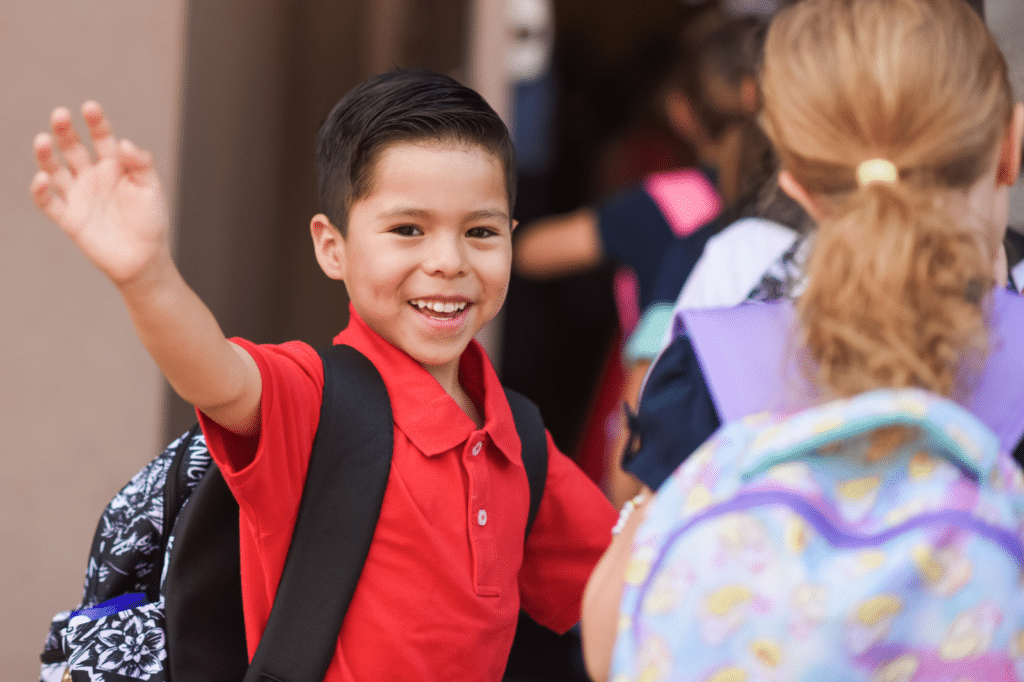Like many of you, I have spent the last few weeks scouring the shelves at HEB, Target and Wal-Mart with a worn checklist in my hand. The twins have the uniforms, the new shoes, the 24-pack of number 2 pencils, and the very specific three-prong purple folder with two pockets. But back to school this year requires more preparation than glue sticks and colored pencils. Are we making sure we are running down the checklist of our children’s mental wellness?
To quote a May 2022 LinkedIn news story: “The children’s mental health crisis didn’t start with COVID-19. But the pandemic served as an accelerant–exacerbating, and exposing deep fissures…the extended social isolation took its toll on young people. Researchers found that rates of mental health conditions like anxiety and depression actually increased as the pandemic dragged on.” Over the last two years, Clarity Child Guidance Center has experienced this increase in real time locally, with a 159% increase in the use of Psychiatric Emergency Services beds that provide immediate intervention in a crisis; 65% increase in patients admitted to an inpatient unit that have not had previous treatment at Clarity; and 19% increase in the number of patients admitted and placed on suicide risk precautions.
What should parents be looking for as summer winds down and school starts again? Below are a few suggestions to help kiddos start the year, prepared for the stress that back to school brings.
Be Communicative
Some parents are hesitant to ask their child if they are experiencing depression, anxiety, or thoughts of harming themselves. There is an unrealistic belief that asking the question will somehow plant the idea. Like most topics with our kiddos, if we aren’t talking to them about it, they are talking about it somewhere, likely with peers.
According to the CDC, in 2018-2019 among adolescents aged 12-17 years: 15.1% had a major depressive episode, 36.7% had persistent feeling of sadness and hopelessness, and 18.8% seriously considered attempting suicide. These numbers are pre-pandemic. Even if your child isn’t experiencing symptoms, chances are high that they know someone that is and may need to talk about how they can help or support a friend. Ask questions and keep that door open; it sets the framework that your home is a safe place to talk about mental wellness.
Manage Expectations
Have we appropriately shifted our expectations as parents and educators to meet this new world we live in? Probably not! At Clarity Child Guidance Center, we are still seeing kids with a lot of anxiety around school. We should expect that some kids are going to be reluctant to return to school. We spent years telling them it wasn’t safe to be around large groups of friends. It will take them time to readjust to this. Some may flat out refuse to go to school while they work through anxiety related to in-person school attendance.
We need to expect that some kids are going to have difficulty forming new friendships. Talking to friends over a computer link is very different than sitting in a room with someone. Some kids may not be comfortable with this.
We need to expect that some kids will struggle academically. Not everyone responded well to virtual learning. It may take some kids several years to truly catch up.
Be Observant
Parents and guardians are the subject matter experts on their kids. They know when something is “off.” Depression and anxiety do not look the same for everyone. The thing to focus on in yourself and your kids is any change in behavior. Is anyone sleeping more or less? Eating more or less? More moody? More withdrawn?
Out littlest family members are most at risk to have mental health issues mislabeled as behavioral issues. They lack the ability to connect their feelings to their words and therefore may act out. Every one of their behaviors has meaning. That tantrum may be the way they express fear, anxiety or feeling unsafe.
If something doesn’t seem right, reach out for help.
Be Present
The most important thing we can do is show up for our kids as they go back to school. Have dinner as a family, help with homework, ask about their day, and get to know what’s going on in their lives. Create a foundation so your kids know that you are in their corner if problems with school do arise.
And, please, be flexible with yourself, your spouse/partner and children. Remember that no one is doing this perfectly.










